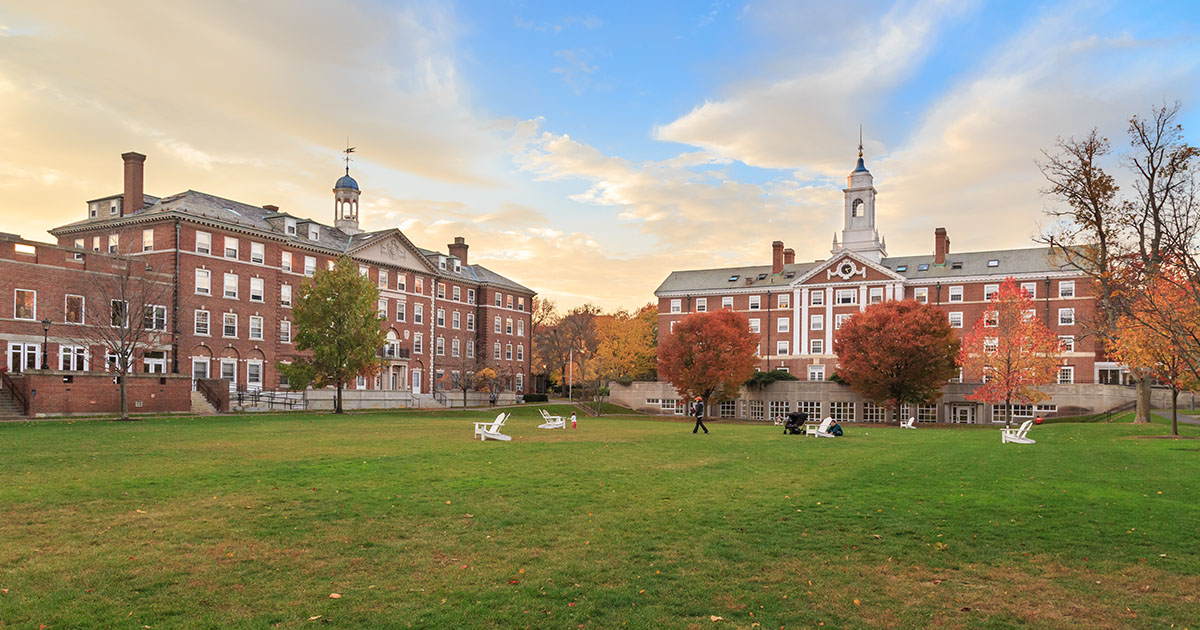
31 Oct 2022 Black Activists Argue Case in U.S. Supreme Court on Harvard’s “Blatant Racial Discrimination”
Washington, D.C. – Explaining that the U.S. Supreme Court’s past “diversity rationale… cannot justify the continuing, blatant racial discrimination in higher education,” the Project 21 black leadership network advocated against Harvard’s harmful and discriminatory race-based admissions policy in a legal brief in the potentially landmark case being argued before the Court today in Washington.
“Affirmative Action is divisive, and it cripples. It divides Americans on the basis of race in a wholly unnecessary way, and it cripples minorities by placing them in institutions that they often are unprepared for,” said Project 21 Chairman Horace Cooper. “Instead of giving a boost to the children of upper-class blacks, schools should adopt strategies that focus on helping the underprivileged regardless of race.”
In what may be the most important issue addressed during the Supreme Court’s 2022-23 term, the cases of Students for Fair Admissions v. Harvard and Students for Fair Admissions v. University of North Carolina challenge race-focused policies rooted in previous decisions by the justices, suggesting that diversity goals justify using preferences in admitting incoming freshman classes. Today, the Court will hear these similar cases – which will be argued separately.
Project 21 submitted an amicus curiae (“friend of the court”) brief in the Harvard case that was prepared by the esteemed law firm of Cooper and Kirk.
“The diversity rationale depends on the premise that skin color predicts a person’s contributions to society,” Project 21’s brief explained. “That premise is false, and anathema to America’s founding principles.”
The brief further noted that race-based admissions are rooted in “the offensive belief that skin color predicts the contributions an individual might make,” and that doing so “invited race essentialism to run amok in college admissions.” In tying racial admissions policies to the hot-button issue of “critical race theory” in education, the brief called diversity rationale “a convenient fig leaf advanced by affirmative action proponents to cover their genuine aim: pursuing some vision of racial justice.”
“This approach generalizes and stereotypes minority students,” Project 21 asserted, “rather than treating them as individuals.” It was also pointed out that it “instrumentalizes human beings,” and creates a debilitating stigma that justices have recognized in the process of ruling on similar cases in the past.
“In 2003, in a case similar to the one against Harvard now, then-Justice Sandra Day O’Connor suggested racial preferences ‘will no longer be necessary’ in 25 years. We may be a few years shy of that, but it’s time,” said Donna Jackson, Project 21’s director of membership development. “Not only are preferences not needed, but they’ve become detrimental to the advancement of black students, discriminatory to students of other races and bad for overall race relations.”
“When policies are identified as wrongheaded or not operating as originally intended, those policies must be discarded,” said Project 21 member Kathleen Wells. “Defending Affirmative Action is merely an attempt by its proponents to double-down on a policy with unintended consequences and has not helped black Americans as was originally intended.”
Project 21’s brief in Students for Fair Admissions, Inc. v. President & Fellows of Harvard College is available here. A decision by the justices in this case is expected before the end of June 2023.
Project 21, a program of the National Center for Public Policy Research, was co-amici on the brief urging the Court to take on the case against University of North Carolina. It has also participated in briefs in other major cases before the U.S. Supreme Court including the Fisher v. University of Texas and Shelby County v. Holder.
Project 21, a leading voice of black conservatives for over 25 years, is sponsored by the National Center for Public Policy Research. Its members have been quoted, interviewed or published over 50,000 times since the program was created in 1992. Contributions to the National Center are tax-deductible and greatly appreciated and may be earmarked exclusively for the use of Project 21.
Founded in 1982, the National Center for Public Policy Research is a non-partisan, free-market, independent conservative think-tank. Ninety-four percent of its support comes from some 60,000 individuals, less than four percent from foundations and less than two percent from corporations. Sign up for email updates here. Follow Project 21 on Twitter at @Project21News for general announcements. To be alerted to upcoming media appearances by Project 21 members, follow our media appearances Twitter account at @NCPPRMedia.



